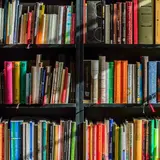The Subjective Science of Age-Appropriate Literature

Are there objective criteria for the appropriateness of books for particular grade levels?
The School Library Journal has provided a summary this week of the latest debates in book availability and censorship throughout the country, and the increasing trend of book bans and challenges to library materials across the United States. It focuses in particular on the targeting of Heartstopper, a popular LGBTQ+ teen romance series by Alice Oseman.
In North Dakota, parents in Sargent Central Schools are attempting to remove the book from school libraries, citing inappropriate content, and a patron of the Bellaire Public Library in Michigan is similarly seeking to restrict access to it. In Virginia, the Shenandoah County School Board is reviewing all library books to ensure that they align with their more conservative values. And in Tennessee, Rutherford County Schools have pulled over 150 books from library shelves due to content that they allege is sexually explicit. Florida’s Department of Education has also released a list of over 700 banned books, and Iowa’s Board of Education is finalizing rules for a law that determines the process that schools will use in banning books that depict sex acts. In Arkansas, a state library board member is pushing for stricter restrictions on access to "sexually explicit" books. Finally, in Nevada, voters have elected two new school board trustees in Clark County who were previously associated with a book-banning group.
These incidents reflect a growing conservative movement to reevaluate books in school libraries and limit access to content deemed inappropriate in schools.
Many educators and activists throughout the country have criticized the removal of books like Heartstopper, saying that doing so limits access to diverse representation and positive LGBTQ+ narratives. Such censorship, they counter, creates a hostile environment for LGBTQ+ students and denies them the validation and understanding that they need. Schools risk contributing to feelings of isolation and marginalization among LGBTQ+ youth by restricting access to inclusive literature, but proponents say that literary content should be determined by age-appropriateness, rather than identity or affinity.